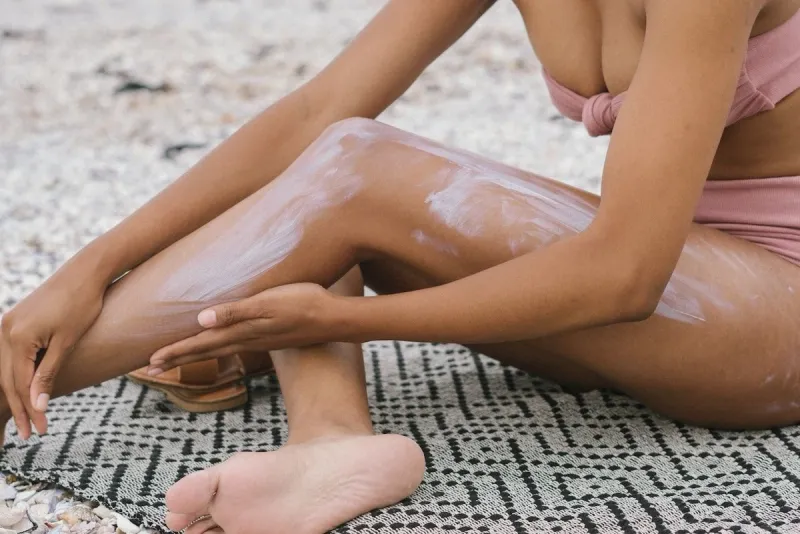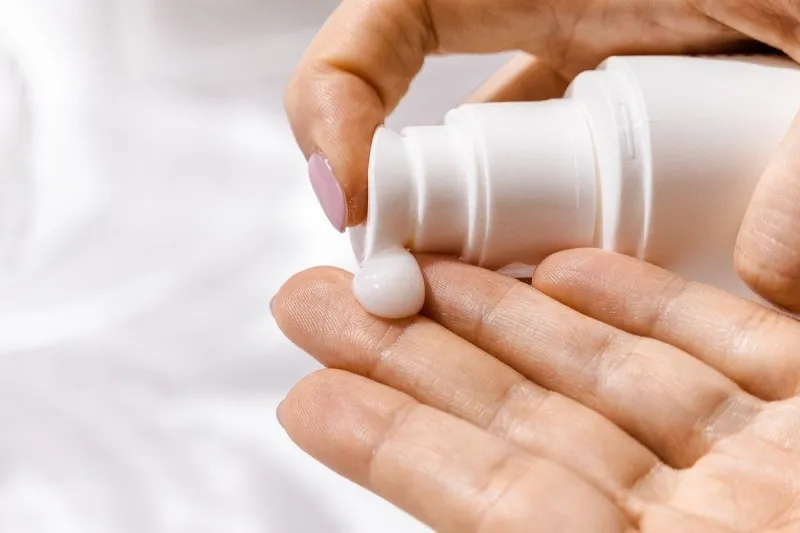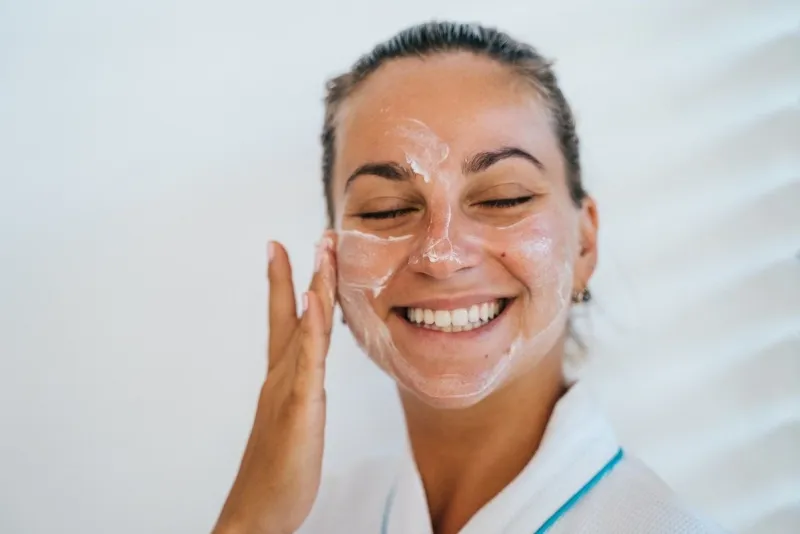Does sunscreen expire? the answer is yes. Sunscreen can go bad. And when it goes bad, it won’t be able to properly protect you from the sun’s UVA rays and UVB rays. The worst part is when you don’t even notice that your sunscreen has lost its effectiveness. You’ll end up walking around, not knowing that you’re already at great risk of sun damage such as sunburns, skin aging (https://www.provenskincare.com/blog/the-ultimate-guide-to-fighting-the-signs-of-skin-aging/), and worse, skin cancer.

The best offense is a good defense.
Shield your skin from sunburns with a personalized regimen that contains a high-quality day moisturizer with SPF.
How long does sunscreen last?
According to the Food and Drug Administration (FDA), sunscreen should retain its strength for three years. That means if you’ve had your sunscreen product for over three years, it’s time to throw it away. A chemical or physical sunscreen that was purchased three years ago won’t be able to fully protect your skin from the sun.
It’s critical to note that not all sunscreens will last three years. How long your sunscreen lasts largely depends on how well it was stored. If stored correctly, it can last up to the expiration date, but if the bottle was exposed to the sun, bacteria, etc., then you’ll have to throw it out sooner.
How can you tell if your sunscreen has expired?
Sun protection products have expiration dates written on them, but the problem is that they’re not always that obvious. If you’re fortunate, you can instantly find the sunscreen expiration date front and center. But in some situations, you’ll have to scope your sunscreen bottle as the expiration date can be so concealed that locating it seems impossible.
If it’s not on the topmost part of the bottle, flip it around — it’s probably at the top of the back of the bottle. There are some that have the date embossed instead of printed so you’ll have to feel for it sometimes. Other times, the date can be trickier to spot as it’s written in a code that you need to decipher. Some sunscreens will write their expiration date as a code starting with four numbers, for example, “2145” to indicate that it was manufactured on the 45th day of 2021.
On some sunscreens labels, you will find a container icon with a number written inside such as “36M”. “36M” means that it’s good for 36 months after opening. This will look similar to the icon you can find on the back of other beauty products like facial cleansers and night creams.
Unfortunately, some chemical and physical sunscreens don’t have expiration dates on them, even if the FDA has already warned companies that they need to write it. That’s why it would be a good idea to write down when you bought your sunscreen. If you can’t remember when you purchased your sunscreen and there’s no date printed on it, it’s best to throw it away as you can’t be certain if it’s still safe.
What are the signs of expired sunscreen?
Apart from the sunscreen expiration date, there are other ways to tell if your sunscreen has expired:
Pungent Smell
Does your sunscreen smell bad? A pungent smell is a sign that your sunscreen product has been contaminated with bacteria. This is typically the case if you often forget to close the lid of your sunscreen — particles can enter and change its formulation.
Watery or Thick Texture
Another sign that your sunscreen is no longer any good is that it doesn’t feel right. Sunscreen shouldn’t be too watery, nor should it be too thick. One way to tell if your old sunscreen is out-of-date is if you get a watery first squeeze, followed by a big goop of sunscreen. That’s because your sunscreen has started to settle at the bottom of the bottle.
Yellowish Tinge
What’s the best way to store sunscreen?
Store your sunscreen wrong and it will go bad. Below are a few best practices on how to store your sun protection products:
Do not store sunscreen in the car
Going to the beach? Whatever you do, don’t leave your sunscreen in the car as this can cause its ingredients to degrade.
Store sunscreen away from direct sunlight
Don’t store your sunblock in the hottest spots in your house, such as by the windows where it will be exposed to the sun. If it’s exposed to the sun, the sunscreen can absorb UV rays, which can ultimately contribute to its expiration. On beach days, remember to wrap the sunscreen bottle with a towel.
Keep sunscreen in cool, dark, and dry cabinets
Can you use expired sunscreen?
Does expired sunscreen work? Yes, but it won’t work as well. It can still provide a bit of sun protection, but it’s best not to use sunscreen once it expires. You can’t rely on it to provide the sun protection you need.
When your sunscreen expires, it won’t be able to provide the full sun protection factor (SPF) as written on its label. This is because its ingredients are unstable. Chemical sunscreen, for instance, contains ingredients (e.g. oxybenzone, octinoxate, octisalate, etc.) that can oxidize. In other words, its formulation will change, and it will no longer be as effective as it once was.
And while the ingredients in mineral sunscreen won’t oxidize, it contains zinc oxide and titanium dioxide, which can degrade. This can cause graininess, discoloration, odor changes, and so on. Plus, chemical and physical sunscreens contain other ingredients that can spoil — you definitely don’t want to put those on your skin, particularly if you have skin concerns like acne.
So, can you use expired sunscreen? You can, but you shouldn’t. For the best sun protection, buy a brand new bottle of sunscreen.
When in doubt, throw it out
It’s best to buy a fresh bottle of sunscreen if you aren’t sure when your current sunscreen is set to expire. Protect your skin from the sun with SPF products that work. When you take PROVEN Skincare’s AI-powered Skincare Quiz, you’ll get a personalized day moisturizer with SPF that works for your skin type. The best part is you don’t have to worry about keeping track of when you bought it — all our products including our facial cleanser and night cream are designed to be used up between 6 to 8 weeks. By the time you run out, we’ll have already sent a brand new set of products to you.
Formulate your own sunscreen with Proven Skincare. When your skincare solutions are all formulated fresh, you can guarantee that your skin gets the unparalleled sun protection it deserves.











